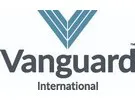Vanguard CEO Craig Stauffer talks about the growing discussions around food scarcity. During the Covid-19 pandemic and the infamous toilet paper shortage, empty grocery store shelves were a a common sight. Food scarcity is a growing concern worldwide and it is partly due to the disruptions in supply chains caused by the pandemic.
Q: At the start of the pandemic, we quickly started seeing empty shelves at grocery stores. What was the root of the emptiness?
 Stauffer: The primary reason was a supply chain issue. Our supply chains are designed to support a “just-in-time delivery” system and when the pandemic hit, these supply chains broke down, making it impossible to deliver goods just in time.
Stauffer: The primary reason was a supply chain issue. Our supply chains are designed to support a “just-in-time delivery” system and when the pandemic hit, these supply chains broke down, making it impossible to deliver goods just in time.
Q: Did hoarding and bulk buying worsen the supply chain blockage?
Stauffer: Although that highlighted how delicate and intricate supply chains are, the disruptions made it difficult to meet sudden surges in demand.
Q: Can you think of a time before 2020 when a similar food scarcity issue occurred?
Stauffer: Food scarcity can be defined in several ways. Were people going hungry and living in ‘food deserts’ before 2020? Sadly, yes. As everyone along the supply chain has to run their business profitably, pushing costs of inventory too far down the supply chain was part of the problem.
Q: There are still occasional shortages or hard-to-find products. What is the cause of this right now?
Stauffer: These shortages are due to the movement of import and export containers in different ports. It is going to take time for these movements to occur at the right time and fully recover.
Q: The last few years have reminded us about vulnerability. We are seeing more extreme weather events more frequently which stresses our supply chain and food growing systems. Do you see more incidents of food scarcity ahead?
Stauffer: Global food producers have been forced to become the pivot masters to survive. In the future, we may see supplies coming from new countries and from new growing systems.
Q: How is Vanguard’s supply chain set up with its global reach to react to global supply chain issues?
Stauffer: Vanguard’s business model has always focused on the importance of a resilient supply chain. We support global growers and we have built and maintained important relationships with ocean, air, and land carriers. Vanguard’s global presence with offices in Chile, Peru, South Africa, China, Taiwan and Indonesia speak volumes of how strongly Vanguard is positioned for the future. Our recent partnership with RK Growers in Italy is a great example of our strength in future proofing our ability to deliver what our customers demand. We also established vertical integration with ranches in Peru, which has made us even stronger, better informed and ready for the future.
 For more information:
For more information:
Andrea Bava
Vanguard International USA
Tel: +1 (778) 908-1764
andrea@blitzme.ca
https://www.vanguardteam.com/en/
